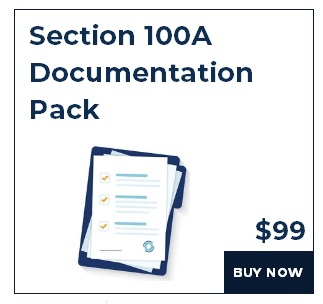
ATO Updates
Taxation Determination TD 2021/2 – Small business CGT concessions
The ATO has released Taxation Determination TD 2021/2 which outlines the application of Taxation Ruling TR 2019/1 to the small business CGT concessions contained in Division 152 of the Income Tax Assessment Act 1997 (Cth). TR 2019/1 sets out the Commissioner’s view on when a company is carrying on a business.
TR 2019/2 states that a company is carrying on a business even if its activities are limited to passively receiving rent or returns on its investments and distributing them to its shareholders.
However, TD 2021/2 provides that a company that carries on a business in a general sense (as described in TR 2019/1), but whose only activity is limited to renting out an investment property cannot access the small business CGT concessions under Division 152 in relation to that investment property. This is because an asset whose main use is to derive rent is excluded from being an active asset under section 152-40(4)(e), even if the rent is derived in the course of carrying on a business.
Decision Impact Statement on MWWD v FCT [2020] AATA 4169 – Independent contractor for superannuation guarantee purposes
The ATO has issued a Decision Impact Statement on the decision handed down in MWWD v FCT [2020] AATA 4169 (summarised in the Birchstone Brief for the week ended 23 October 2020). In this case, the AAT held that a service technician was an independent contractor and not an ’employee’ of a machinery repair business for superannuation guarantee purposes. The ATO considers that the decision was fact dependent, and does not have wider ramifications beyond the taxpayer’s particular circumstances.
ATO releases approved forms and instructions: Loss carry back and temporary full expensing for early balancers
The ATO has released a form and accompanying instructions for entities who have an early balancer substituted accounting period (or who need to lodge a return for part of 2020-21) to claim the loss carry back tax offset.
The ATO has also released a form and accompanying instructions for entities who have an approved substituted accounting period with a year ending before 30 June 2021 (or need to lodge a return for part of 2020-21) to claim a deduction for, or opt out of, the temporary full expensing measure.
ATO worksheet: Tax treatment of COVID-19 stimulus measures
The ATO has released a worksheet which sets out its view on the income tax and GST consequences of government stimulus measures paid to assist Australians impacted by COVID-19.
ATO draft determination: Effective lives of assets in the horse training (racing) industry
The ATO has released a draft list of effective lives for assets used in the horse training (racing) industry.
Class Rulings
The ATO has issued the following class rulings:
- CR 2021/15 – CU Health Pty Ltd – exempt benefits relating to work-related medical examinations, medical screenings, preventative health care and counselling of employees;
- CR 2021/16 – Mix Telematics Australasia Pty Ltd – use of Fleet Manager systems for car logbook and odometer records;
- CR 2021/17 – Shante Pty. Ltd. – use of an electronical travel smartcard for public bus transport by an employee;
- CR 2021/18 – Eton Irrigation Cooperative Ltd – receipt of membership;
- CR 2021/19 – EQT Wholesale Flagship Fund – scrip for scrip roll-over;
- CR 2021/20 – Portfolio Plus Industrial Equities Fund – scrip for scrip roll-over; and
- CR 2021/21 – Equities Fund – scrip for scrip roll-over.
Cases
ZBFF v FCT [2021] AATA 275 – Payment remitted to a friend formed part of net capital gain
The AAT has affirmed the Commissioner’s decision that a taxpayer’s net capital gain on the sale of property was not reduced by proceeds remitted to a friend (Mr Green) as part of an agreement.
To avoid Mr Green losing his home in Family Court proceedings, the taxpayer’s family trust acquired the property for $1.4 million from Mr Green. The taxpayer agreed that Mr Green retained a right to reside in the property until he repurchased the property for $1.4 million or until he directed a sale, in which case Mr Green would receive the proceeds of sale exceeding $1.4 million (plus costs). The taxpayer subsequently disposed of the property for $2.45 million and remitted the excess proceeds of $611,144 to Mr Green.
The Commissioner assessed the taxpayer on the net capital gain, inclusive of the proceeds remitted to Mr Green. The taxpayer argued that there was no net capital gain for various reasons.
The AAT held that the proceeds remitted to Mr Green formed part of the net capital gain on the following grounds:
- the capital proceeds include everything the trust was entitled to receive under the contract for sale of property, even if a portion was remitted to Mr Green;
- the payment did not form part of the cost base as it was not related to increasing or preserving the value of the property;
- there was no factual basis for CGT event C2 occurring; and
- there was insufficient evidence that the trust was conducting a business to claim a deduction under section 40-880.
Clough Ltd v FCT [2021] FCA 108 – Amount paid for cancellation of employee entitlements not deductible
The Federal Court of Australia has held that a taxpayer was not entitled to an immediate deduction for a $15 million payment made to cancel employee entitlements under an employee option plan and an employee incentive scheme. The employee entitlements were cancelled, and the payments made, as part of an arrangement in which a majority shareholder became the sole shareholder in the company. The taxpayer sought to deduct the $15 million payment under section 8-1 of the Income Tax Assessment Act 1997 (Cth). The ATO only allowed a deduction over 5 years under section 40-880.
The Court held that the $15 million payment was not deductible under section 8-1 as it was not incurred in gaining or producing assessable income, nor was it necessarily incurred in carrying on a business for the purpose of gaining or producing such income. It was held that the payment was not connected to any business activities as it was paid to facilitate the acquisition of shares in the taxpayer company by the majority shareholder. Further, it was not paid as a reward or an incentive to employees or the payment of an accrued entitlement.
Salemade Pty Ltd & Ors v Commissioner of State Revenue [2021] QSC 19 – Companies grouped for payroll tax purposes
The Supreme Court of Queensland has ruled that nine companies were grouped for payroll tax purposes. Mr and Mrs Crane were directors of the taxpayer company, Oakdale Qld, which paid payroll tax on the basis that it was not part of a group. The eight other companies were all in some way related to Mr and Mrs Crane or their family members. In 2015, the Commissioner of State Revenue issued reassessment notices on the basis that Oakdale Qld was grouped with the eight other entities.
The key issue in dispute was whether the companies were members of a group of commonly controlled companies under section 71 of the Payroll Tax Act 1971 (Qld), and specifically whether a single director can have a controlling interest in a business under section 71(2)(c)(i) (which applies where a person is entitled to exercise more than 50% of the votes at a “meeting” of directors). It was held that the taxpayers were a group of commonly controlled companies, because Mr and Mrs Crane had controlling interests when they were sole directors of the respective companies. The court interpreted section 71(2)(c)(i) as meaning that sole directorship could qualify as a controlling interest in a business when there is a single director who is able to pass resolutions of the company without holding a meeting.
Legislation
Australian Charities and Not-for-profits Commission Amendment (2021 Measures No. 1) Regulations 2021 – Regulations made for new governance standard
The Regulations which prescribe a new governance standard in the Australian Charities and Not-for-profits Commission Regulation 2013 have been registered. The Regulations require a registered entity to take reasonable steps to become a participating entity in the National Redress Scheme for Institutional Child Sexual Abuse if the entity is, or is likely to be, identified as being involved in the sexual abuse of a person. A registered entity may lose their charitable status if they fail to comply with this new governance standard.

